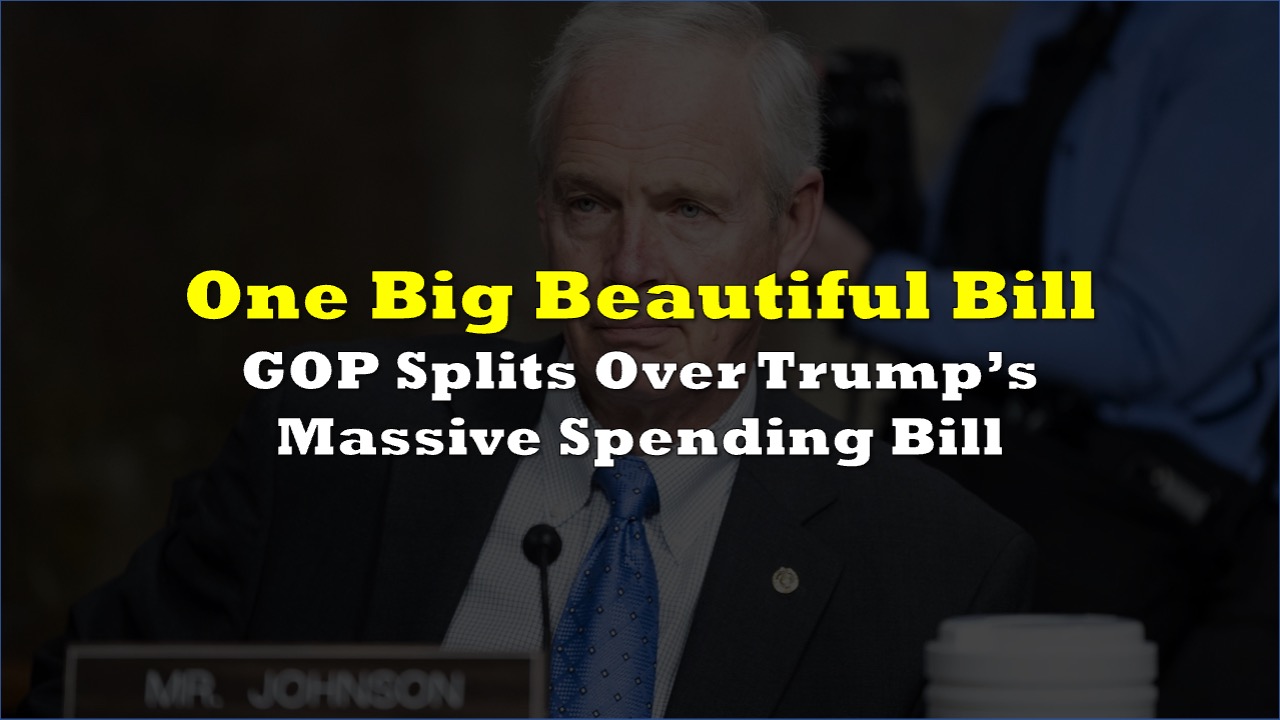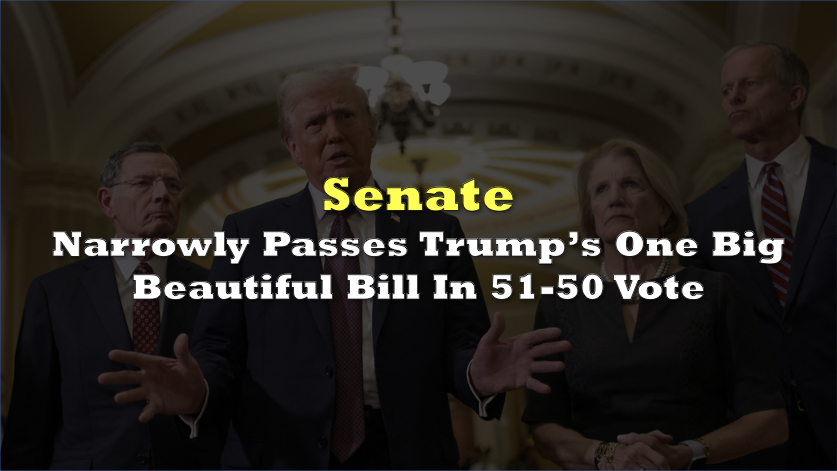Senator Ron Johnson is refusing to support President Donald Trump’s sweeping budget reconciliation bill, citing concerns over its massive deficit impact and creating potential obstacles for the legislation in the Senate.
The Wisconsin Republican told ABC News on Wednesday he cannot back Trump’s “One Big Beautiful Bill” despite White House pressure to pass it by July 4.
“I refuse to accept $2 trillion-plus deficits as far as the eye can see as the new normal,” Johnson said. “We have to address that problem, and, unfortunately, this bill doesn’t do so.”
BREAKING: Republican Senator Ron Johnson just announced there are enough Republicans in the Senate right now to completely halt Trump’s reconciliation package. This is disastrous news for Donald Trump.pic.twitter.com/XjDlOPgAvm
— Democratic Wins Media (@DemocraticWins) June 4, 2025
The Congressional Budget Office estimates the legislation would add $2.4 trillion to the federal deficit over 10 years.
The House passed the reconciliation package 215-214 in May, with only two Republicans voting against it. The legislation, officially known as H.R. 1, consolidates Trump’s tax and spending priorities into a single comprehensive bill.
The measure would make permanent the 2017 Trump tax cuts set to expire at year’s end and fulfill campaign promises to eliminate taxes on tips, overtime pay and interest on US-made car loans. It also includes $267 billion in cuts to food assistance programs over 10 years, nearly $700 billion in Medicaid reductions through stricter work requirements, and $46.5 billion for border wall construction.
Johnson wants to split the legislation into smaller pieces, handling immediate priorities like border security and defense spending first, then taking time to review government spending for cuts.
“You have to do the things we agree on,” Johnson said, listing border security, defense and extending current tax law as priorities. “Then come back, do the hard work of forensically auditing spending on these programs, and get serious about reducing that deficit trajectory.”
Johnson said he had a “very cordial conversation” with Trump about his concerns but added that fixing the budget “is going to take time.”
Beyond Republican opposition, the bill faces potential obstacles from Senate rules governing reconciliation bills. The Byrd Rule requires all provisions to have direct budgetary effects rather than being primarily policy changes.
This could eliminate provisions restricting state artificial intelligence regulation, changing nonprofit tax status procedures, or altering immigration law beyond funding increases.
Related: State Lawmakers Push Back on Trump AI Regulation Ban
The CBO estimates about 11 million Americans could lose health insurance under the bill, with 8.6 million losing Medicaid coverage by 2034 due to new work requirements. The legislation would also allow tax credits that subsidize insurance premiums under the Affordable Care Act to expire at the end of 2025.
The bill is a critical test for Trump’s second-term agenda and Republican governance with narrow congressional majorities. Trump believes the bill is “arguably the most significant piece of Legislation that will ever be signed in the History of our Country.”
With slim margins in both chambers, opposition from fiscal conservatives like Johnson poses significant challenges to passage. The outcome could determine the trajectory of Trump’s domestic agenda for his second term.
Johnson said he wants to see Trump succeed but emphasized that “fixing the budget is going to take time.”
Also read: Elon Musk Condemns Trump’s ‘One Big, Beautiful Bill’ as Fiscal Disaster
Information for this story was found via the sources and companies mentioned. The author has no securities or affiliations related to the organizations discussed. Not a recommendation to buy or sell. Always do additional research and consult a professional before purchasing a security. The author holds no licenses.









